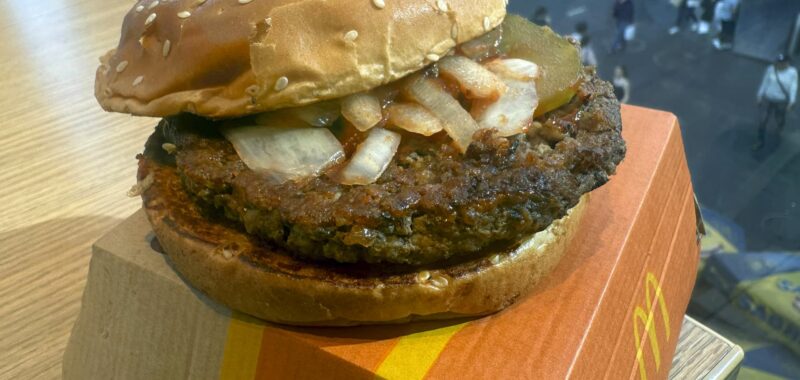The Food and Drug Administration said Thursday that it’s investigating whether Taylor Farms, a supplier for McDonald’s, is the possible source of the E. coli outbreak linked to Quarter Pounder hamburgers, which has killed at least one person and sickened nearly 50 others.
In a notice to customers, distributor U.S. Foods said Taylor Farms announced a recall on four raw onion products out of an abundance of caution “due to potential E. coli contamination.” The notice urged customers such as restaurants to stop using and destroy the affected products as soon as possible.
The FDA and the Centers for Disease Control and Prevention have honed in on slivered onions served on the hamburgers as the likely source of contamination.
An FDA spokesperson confirmed Thursday the agency was investigating Taylor Farms, adding, “We’re looking at all possible sources.”
As of Wednesday, 49 people have been sickened with E. coli infections linked to the outbreak. One older adult has died, and 10 others, including a child suffering from hemolytic uremic syndrome, have been hospitalized.
Colorado restaurant chains, including Illegal Pete’s and Taco Bell, also removed onions from their menu following the recall, according to local reports. There are no signs of E. coli illnesses linked to those restaurants.
Until now, it wasn’t clear where the McDonald’s onions were sourced from â neither the restaurant chain nor public health officials had said publicly where the onions were grown or whether they were sent to other restaurants.
A McDonald’s spokesperson said Wednesday that the raw onions were sourced from a single supplier and processed at a single facility. They are sliced and packaged at the facility as raw vegetables in individual bags and then distributed to restaurants.
A spokesperson for Taylor Farms did not immediately respond to a request for comment. According to the company’s website, Taylor Farms is a California-based producer of fresh-cut fruits and vegetables.
The strain of E. coli in the outbreak, called O157:H7, produces a powerful toxin that can damage the lining of the small intestine.
Health officials said Wednesday that they expect the number of cases to grow.

